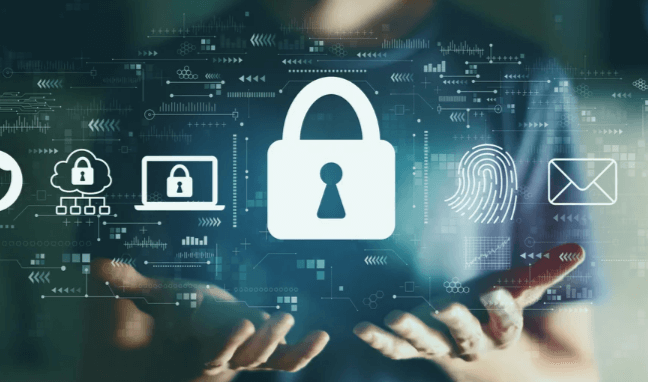What impact will quantum computing have on data security and encryption?

Introduction
Quantum computing is poised to revolutionize numerous fields, with data security and encryption standing out as two of the most significantly affected areas. This article delves into the profound impact that quantum computing will have on data security and encryption, examining both the challenges and the advancements it brings. As we stand on the brink of a quantum revolution, understanding its implications is crucial for preparing robust defenses and leveraging its potential for enhanced security.
Understanding Quantum Computing
Quantum computing operates on the principles of quantum mechanics, harnessing the unique properties of quantum bits or qubits. Unlike classical bits, which can be either 0 or 1, qubits can exist in multiple states simultaneously thanks to superposition. This property, along with entanglement, enables quantum computers to perform complex calculations at unprecedented speeds, far surpassing the capabilities of classical computers.
The Quantum Threat to Encryption
Traditional Encryption Methods
Traditional encryption methods, such as RSA and ECC (Elliptic Curve Cryptography), rely on the computational difficulty of certain mathematical problems. For instance, RSA encryption depends on the challenge of factoring large prime numbers, a task that would take classical computers an impractically long time to complete.
Shor’s Algorithm and Its Implications
Peter Shor’s algorithm, developed in 1994, demonstrated that a quantum computer could factor large numbers exponentially faster than classical computers. This means that RSA encryption, which is currently considered secure, could be broken by a sufficiently powerful quantum computer in a fraction of the time, rendering it obsolete.
Quantum-Safe Cryptography
Post-Quantum Cryptography
To counteract the quantum threat, researchers are developing post-quantum cryptographic algorithms. These algorithms are designed to be resistant to quantum attacks, ensuring data security in the quantum era. Lattice-based cryptography, hash-based cryptography, and code-based cryptography are among the leading candidates for post-quantum encryption methods.
Lattice-Based Cryptography
Lattice-based cryptography is considered one of the most promising approaches. It relies on the hardness of lattice problems, which remain difficult even for quantum computers. Techniques such as Learning With Errors (LWE) and Ring-LWE are at the forefront of this research, offering robust security against quantum attacks.
Quantum Key Distribution (QKD)
How QKD Works
Quantum Key Distribution (QKD) leverages the principles of quantum mechanics to securely exchange cryptographic keys. Unlike classical key distribution methods, QKD ensures that any attempt to eavesdrop on the key exchange will be detected, thanks to the inherent properties of quantum particles.
The BB84 Protocol
The BB84 protocol, developed by Charles Bennett and Gilles Brassard in 1984, is one of the first and most widely implemented QKD protocols. It uses the polarization states of photons to encode and transmit the key, ensuring secure communication between parties.
Enhancing Data Security with Quantum Technologies
Quantum Random Number Generators
Quantum random number generators (QRNGs) utilize the inherent randomness of quantum processes to generate truly random numbers. These numbers are crucial for creating secure cryptographic keys, enhancing the overall security of encryption systems.
Quantum-Enhanced Cryptographic Protocols
Quantum computing can also enhance existing cryptographic protocols. For example, quantum algorithms can be used to improve the efficiency and security of digital signatures, authentication protocols, and secure multi-party computation.
Potential Risks and Mitigation Strategies
The Transition Period
The transition to quantum-resistant encryption will not happen overnight. During this period, data encrypted with traditional methods remains vulnerable to future quantum attacks, a phenomenon known as “store now, decrypt later.” It’s crucial to begin transitioning to quantum-safe algorithms as soon as possible.
Hybrid Cryptographic Systems
One approach to mitigate risks during the transition is the use of hybrid cryptographic systems. These systems combine classical and quantum-resistant algorithms, providing an additional layer of security until quantum-safe methods are fully adopted.
The Future of Data Security
Continuous Evolution
The field of data security and encryption will continue to evolve alongside advancements in quantum computing. Ongoing research and development are essential to stay ahead of potential threats and leverage quantum technologies for enhanced security.
Collaboration and Standardization
Global collaboration and standardization efforts are critical for the successful implementation of quantum-safe cryptographic methods. Organizations such as the National Institute of Standards and Technology (NIST) are working towards establishing standards for post-quantum cryptography, ensuring widespread adoption and interoperability.
FAQs
What is quantum computing? Quantum computing is a type of computing based on the principles of quantum mechanics, using quantum bits (qubits) that can represent and process information in multiple states simultaneously.
How does quantum computing affect encryption? Quantum computing poses a threat to traditional encryption methods, such as RSA and ECC, by enabling the efficient solving of mathematical problems that these methods rely on for security.
What is post-quantum cryptography? Post-quantum cryptography involves developing new cryptographic algorithms that are resistant to quantum attacks, ensuring data security in the era of quantum computing.
What is Quantum Key Distribution (QKD)? QKD is a secure method of exchanging cryptographic keys using quantum mechanics, ensuring that any attempt to eavesdrop on the key exchange will be detected.
What are lattice-based cryptographic algorithms? Lattice-based cryptographic algorithms rely on the difficulty of lattice problems, which remain hard for both classical and quantum computers, making them promising candidates for post-quantum encryption.
What is a hybrid cryptographic system? A hybrid cryptographic system combines classical and quantum-resistant algorithms to provide an additional layer of security during the transition to fully quantum-safe encryption methods.
Conclusion
Quantum computing holds the potential to revolutionize data security and encryption, offering both significant threats and advancements. While traditional encryption methods face the risk of being rendered obsolete by powerful quantum computers, the development of post-quantum cryptographic algorithms and quantum-enhanced security techniques promises to safeguard our digital future. As we navigate this transition, it is crucial to stay informed, proactive, and collaborative, ensuring that data security remains robust in the face of quantum challenges.





